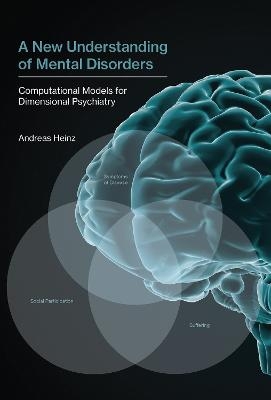
A New Understanding of Mental Disorders
Computational Models for Dimensional Psychiatry
Seiten
2017
MIT Press (Verlag)
978-0-262-03689-4 (ISBN)
MIT Press (Verlag)
978-0-262-03689-4 (ISBN)
A new computational and dimensional approach to understanding and classifying mental disorders: modeling key learning and decision-making mechanisms across different mental disorders.
Even as researchers look for neurobiological correlates of mental disorders, many of these disorders are still classified solely according to the manifestation of clinical symptoms. Neurobiological findings rarely help diagnose a specific disease or predict its outcome. Although current diagnostic categories are questionable (sometimes labeling common states of human suffering as disorders), traditional neuroimaging approaches are not sophisticated enough to capture the neurobiological markers of mental disorder. In this book, Andreas Heinz proposes a computational and dimensional approach to understanding and classifying mental disorders: modeling key learning and decision-making mechanisms across different mental disorders. Such an approach focuses on the malleability and diversity of human behavior and its biological underpinnings.
Heinz explains basic learning mechanisms and their effects on human behavior, focusing not on single disorders but on how such mechanisms work in a multitude of mental states. For example, he traces alterations in dopamine-reinforcement learning in psychotic, affective, and addictive disorders. He investigates to what extent these basic dimensions of mental disorders can account for such syndromes as craving and loss of control in addiction, positive and negative mood states in affective disorders, and the altered experience of self and world associated with psychotic states. Finally, Heinz explores the clinical and therapeutic implications of such accounts. He argues that a focus on learning mechanisms, with its emphasis on human creativity and resilience, should help reduce the stigma of mental disorder.
Even as researchers look for neurobiological correlates of mental disorders, many of these disorders are still classified solely according to the manifestation of clinical symptoms. Neurobiological findings rarely help diagnose a specific disease or predict its outcome. Although current diagnostic categories are questionable (sometimes labeling common states of human suffering as disorders), traditional neuroimaging approaches are not sophisticated enough to capture the neurobiological markers of mental disorder. In this book, Andreas Heinz proposes a computational and dimensional approach to understanding and classifying mental disorders: modeling key learning and decision-making mechanisms across different mental disorders. Such an approach focuses on the malleability and diversity of human behavior and its biological underpinnings.
Heinz explains basic learning mechanisms and their effects on human behavior, focusing not on single disorders but on how such mechanisms work in a multitude of mental states. For example, he traces alterations in dopamine-reinforcement learning in psychotic, affective, and addictive disorders. He investigates to what extent these basic dimensions of mental disorders can account for such syndromes as craving and loss of control in addiction, positive and negative mood states in affective disorders, and the altered experience of self and world associated with psychotic states. Finally, Heinz explores the clinical and therapeutic implications of such accounts. He argues that a focus on learning mechanisms, with its emphasis on human creativity and resilience, should help reduce the stigma of mental disorder.
Andreas Heinz is Director and Chair of the Department of Psychiatry and Psychotherapy at the Charite- Universitatsmedizin Berlin.
| Erscheinungsdatum | 29.01.2018 |
|---|---|
| Reihe/Serie | The MIT Press |
| Zusatzinfo | 35 b&w illus.; 70 Illustrations |
| Sprache | englisch |
| Maße | 152 x 229 mm |
| Themenwelt | Geisteswissenschaften ► Psychologie |
| Medizin / Pharmazie ► Medizinische Fachgebiete ► Psychiatrie / Psychotherapie | |
| Naturwissenschaften ► Biologie ► Humanbiologie | |
| Naturwissenschaften ► Biologie ► Zoologie | |
| ISBN-10 | 0-262-03689-4 / 0262036894 |
| ISBN-13 | 978-0-262-03689-4 / 9780262036894 |
| Zustand | Neuware |
| Informationen gemäß Produktsicherheitsverordnung (GPSR) | |
| Haben Sie eine Frage zum Produkt? |
Mehr entdecken
aus dem Bereich
aus dem Bereich
Buch | Softcover (2023)
Kohlhammer (Verlag)
24,00 €
Menschen mit psychischer Erkrankung wirksam unterstützen
Buch | Hardcover (2023)
Psychiatrie Verlag
35,00 €


